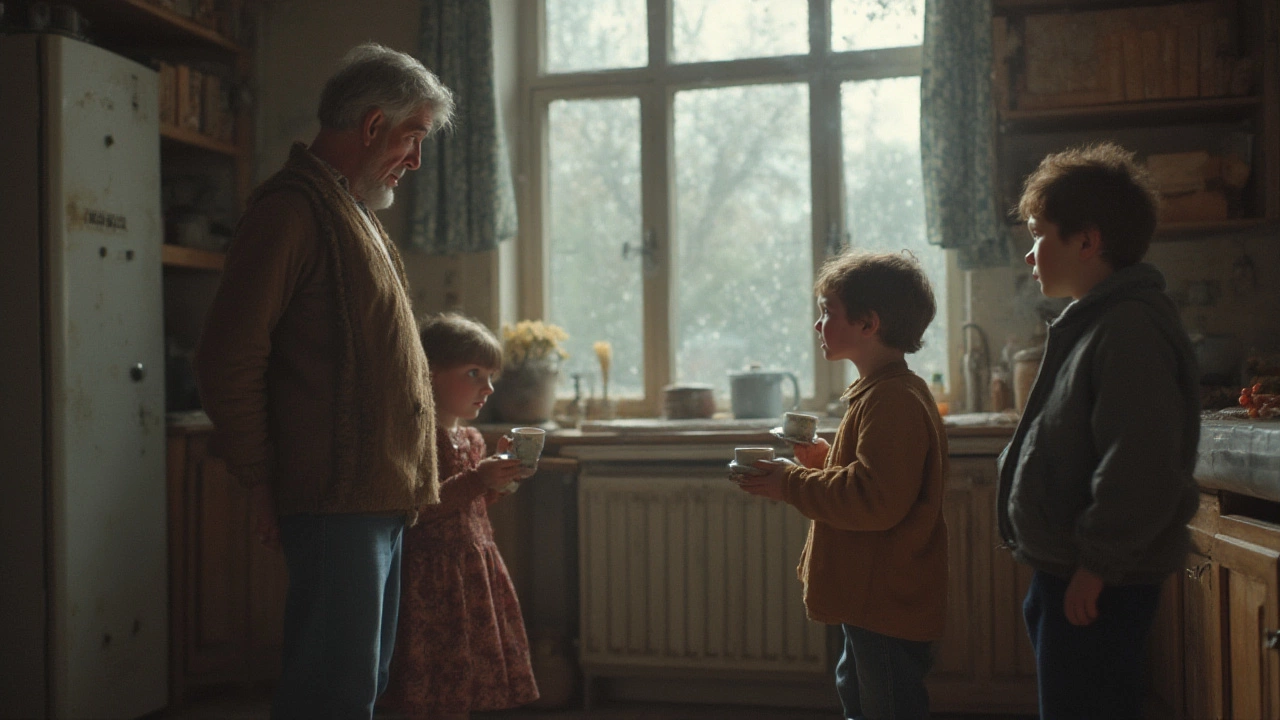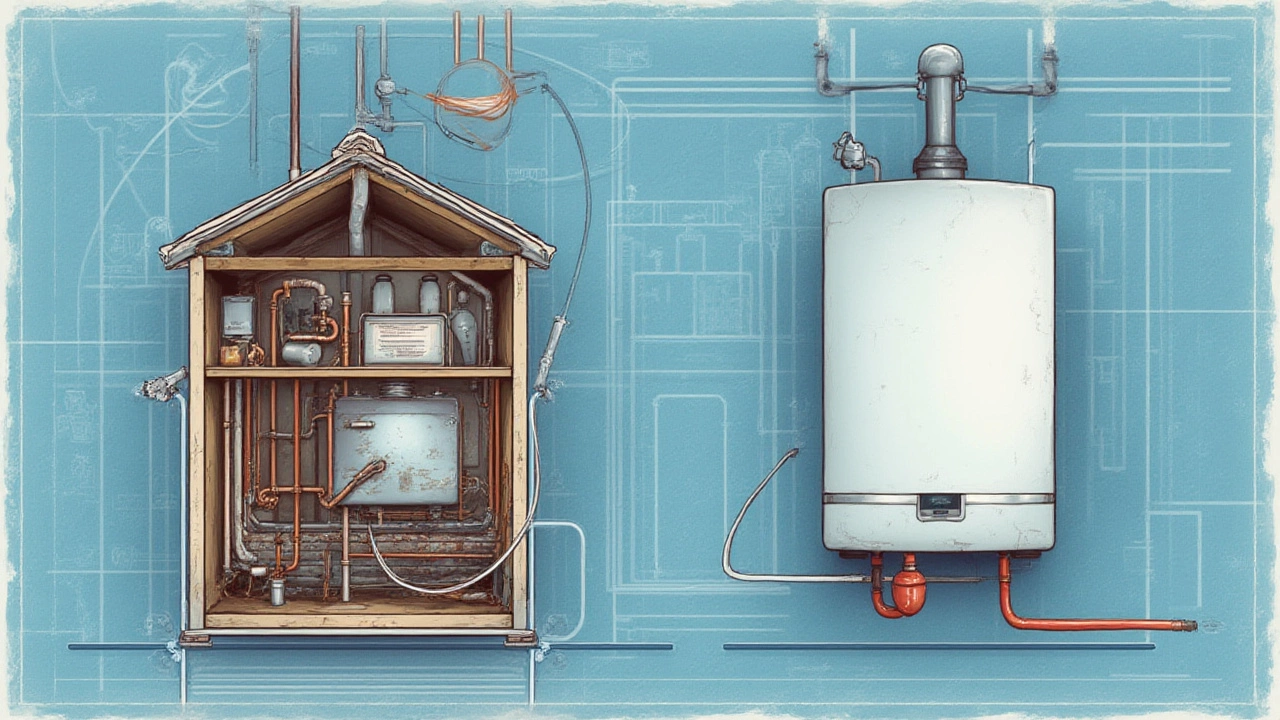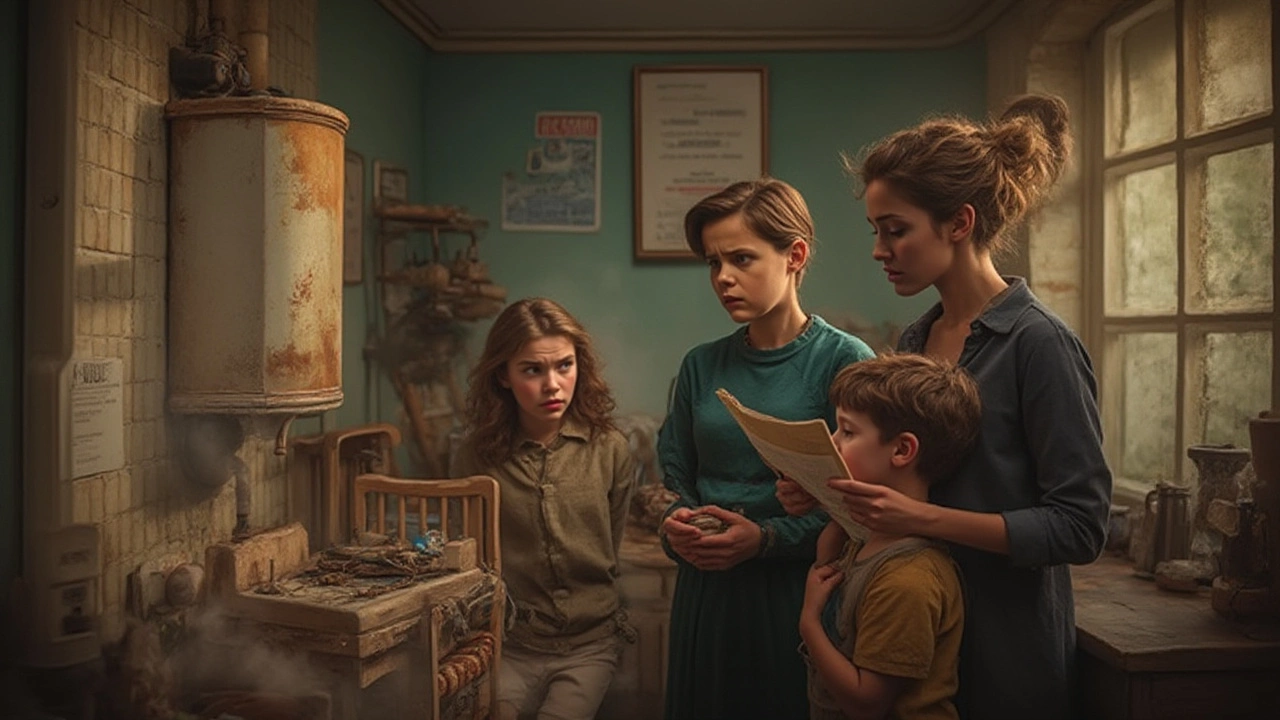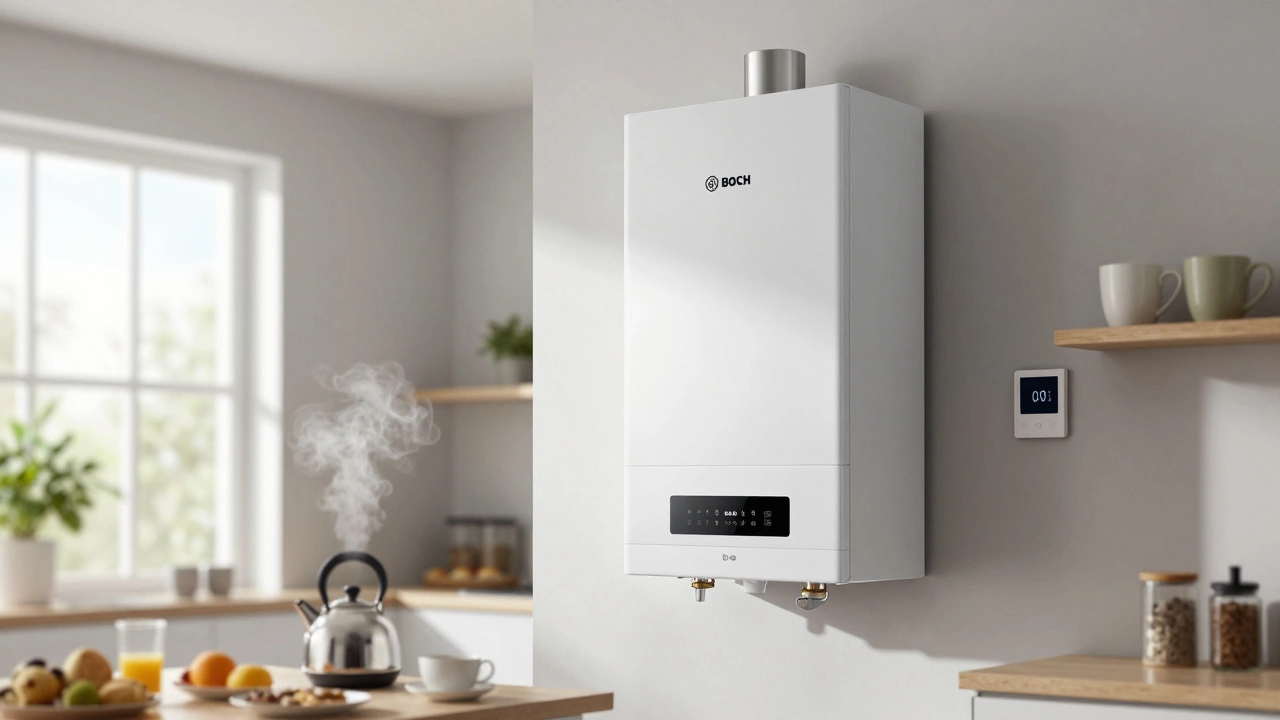
- 23 Jul 2025
- Gideon Thornton
- 0
Stand in a chilly kitchen waiting for the kettle, and your mind might drift to that mysterious beast humming away in the cupboard—the boiler. It’s one of those things most of us ignore until the shower runs cold or Christmas dinner is threatened by icy radiators. But how many winters can you expect from your faithful boiler before it wheezes out its final puff? You hear mixed numbers from friends and neighbours, and it’s a lot more complicated than just counting birth years. Let’s strip the confusion and break down the real-life span of a boiler, the science behind its aging, and the savvy moves that could save your household comfort and cash.
What Affects Your Boiler’s Lifespan?
Boiler lifespans aren’t just a matter of the calendar. Sure, you might hear “ten years” thrown around, but the reality is much messier. The main driver is the quality and type of boiler you’ve got. Traditional gas boilers tend to push out 10 to 15 solid years, while new condensing models can last just as long, sometimes up to 20 years if you’re really diligent. Electric boilers often clock in a bit less, partly because they’re usually single units and work a bit harder. But here’s a surprising twist: hard water can quietly cut those years short. If you live somewhere like Bristol with limescale-friendly pipes, all those microscopic chalk bits build up in your boiler’s entrails, making it work overtime and shave off years.
Then there’s maintenance. Skipping annual checks is like never changing the oil in your car and hoping it doesn’t break down on the M5. According to a 2022 Which? report, boilers with yearly servicing regularly outlast those that are ignored by two to five years—an instant win. The installation matters too. A poorly fitted boiler, or one working with badly sized or dodgy old pipes, will spend its life fighting an uphill battle. It’s wild how something as small as incorrect pipework sizing can knock years off a unit. Lastly, sheer usage will tip the scale. Larger families, more hot water, and high-demand heating take their toll. When my son Soren was a newborn—showers on demand, endless laundry—our old combi system seemed to age overnight.
The Clear Signs Your Boiler Is Fading
You can ignore a fading boiler for a while, but eventually, it’ll shout for attention—or just quietly collapse. There are a few signals to watch for that mean it’s time for a change instead of more patch fixes. If it keeps breaking down despite repair after repair, that’s a massive red flag. Age is a factor, but the minute a boiler needs new parts more than once a year, you’re stuck in that awkward zone where repairs are expensive and unreliable. Pay close attention to weird noises—if you start hearing clanging, whistling, or banging from your boiler, it usually means buildup or failing components inside. These grumbles shouldn’t be ignored; often, they’re the prelude to a bigger failure.
Another major sign is a drop in performance. Slowly, rooms start staying chillier; hot water is lukewarm or takes forever to come through. That usually means the boiler isn’t firing on all cylinders. Your bills might creep up too, which is a big tell—an aging boiler uses more energy to produce the same warmth, so if you notice a surprise spike on your direct debit, it’s not just inflation to blame. For families, the headache of a repeatedly failing system during the cold months can be stressful—especially with kids like Soren, who are not shy in voicing their opinion when the shower turns cold.
There are safety alarms too. If your boiler flame is yellow instead of a clear blue, carbon monoxide could be leaking—switch off, ventilate the room, and call in a pro right away. And if your carbon monoxide alarm goes off even once, that’s the end of the road for the boiler.
| Sign | What It Likely Means |
|---|---|
| Frequent Repairs | Lifespan coming to an end |
| Rising Bills | Inefficient performance |
| Strange Noises | Internal wear, sludge, or limescale buildup |
| Yellow Pilot Light | Potential carbon monoxide leak |
| Inconsistent Heating | Failing internal parts |

Maximising Boiler Life: Simple Steps That Work
No one wants to fork out for a new boiler before they absolutely need to. There are a few genuinely effective ways to postpone that moment. First, regular servicing really is king—put the yearly boiler check in your phone calendar and don’t skip it. Plumbers will spot small issues before they grow and keep your system safe. Bleeding radiators can make a surprising difference, especially if you notice cold spots on your radiators during winter. That’s trapped air, making your whole system work harder.
Install a magnetic filter if you haven’t already. These clever gadgets catch the black iron sludge that builds up inside your radiators and pipes—sludge is the archenemy of efficiency. On a related point, if you live in a hard water area, consider adding a scale reducer or water softener to your system. The difference in limescale build-up between homes that treat water and those that don’t is night and day—my mum upgraded her system near Bath, and the new boiler’s still purring 12 years later.
Upgrading your thermostat also helps. Old-school dials are wildly inaccurate compared to modern smart controls. Swapping over lets you schedule heating smartly and keeps boiler firing to a minimum. Insulating your pipes and lagging the hot water tank (if you have one) keeps the heat where it belongs, so your boiler isn’t working double-time. And don’t ignore leaks—tiny drips below the boiler or from any connected pipes spell trouble. Left alone, that’s a shortcut to corrosion and internal damage.
- Service your boiler every year
- Bleed your radiators
- Install a magnetic filter
- Treat for hard water with a scale reducer
- Switch to a modern thermostat
- Add pipe insulation and tank lagging
- Fix leaks quickly
These steps sound fiddly, but in practice, they’re quick jobs or a single call to a local engineer, and they genuinely stretch out how many winters your boiler can give you.
The Life Cycle Numbers: What the Data Really Shows
It’s easy to toss out “10 years,” but digging into the numbers gives a clearer picture. According to the Energy Saving Trust, the average British household replaces their boiler every 10-15 years. However, the outliers are fascinating—a survey by the Association of Plumbing and Heating Contractors in 2023 found that around 22% of boilers they replaced were over 17 years old, with a small handful hitting 25 years (usually those tough-as-nails cast-iron systems from the 80s). By contrast, about 30% of new-style high-efficiency condensing boilers needed replacing at under 10 years, often due to poor maintenance.
If you want to geek out, here’s a quick table with recent stats for reference:
| Type of Boiler | Average Lifespan (Years) | Early Replacement (% under 10 years) | # Still Working at 15 Years |
|---|---|---|---|
| Traditional Gas (pre-2005) | 15 | 18% | 67% |
| Condensing Gas (post-2005) | 10–15 | 30% | 55% |
| Electric | 8–12 | 27% | 40% |
| Oil | 11–15 | 19% | 43% |
What does this show? Maintenance is a major dividing line. Old boilers with simple mechanical parts can go for ages if maintained, but modern units, while far more efficient, need more attentive care to hit their top years. If you want to avoid early replacement, treat that service reminder like gospel.

Replacing Your Boiler: When, Why, and the Payoff
Nobody opens their wallet for a new boiler out of joy. It’s usually out of fear: fear of a freezing shower, a breakdown mid-winter, or a costly last-minute callout. But sometimes, biting the bullet before total failure pays off. The cost-saving isn’t just potential callout charges or scrapped family holidays—modern boilers are up to 94% efficient, compared to the 70% you might get from an old non-condensing lump. That could mean £200–£300 a year off heating bills, especially with gas prices allegedly never coming down.
Upfront cost feels steep: In Bristol, a standard domestic boiler install can run £2,000–£3,500, more if you’re switching from a traditional to a combi system. But warranties are generous these days; new units offer seven to twelve years with regular service. Many local fitters even have monthly payment options to soften the blow. It’s not just about cash: safety and peace of mind matter. If you’ve got young kids or elderly folks at home, reliable heating is non-negotiable. Soren, for example, is never shy about letting the household know if morning baths are trending toward Arctic.
And if you’re thinking about selling up, a modern heating system is a big tick for would-be buyers. It’s not a wild exaggeration to say a new, efficient boiler can bump your home’s energy rating by one or two grades, which translates into value on the market and brings your place into line with ever-tighter UK energy regs.
Why wait until the boiler wheezes out its last before upgrading? Modern boilers are quieter, smaller, and come with smart controls that let you manage your heating from your phone. The upgrade even gets a mention in many property surveys—making buyers confident that their future home isn’t hiding a ticking time-bomb in the utility cupboard.
Every boiler has its swan song. If your current unit’s pushing through its twilight years, now’s the moment to start planning instead of waiting for the inevitable midwinter drama. With smart maintenance and a little bit of forward thinking, you might squeeze every last day out first. And when the time does come, you’ll be ready—no frozen toes or cold dinners required.




